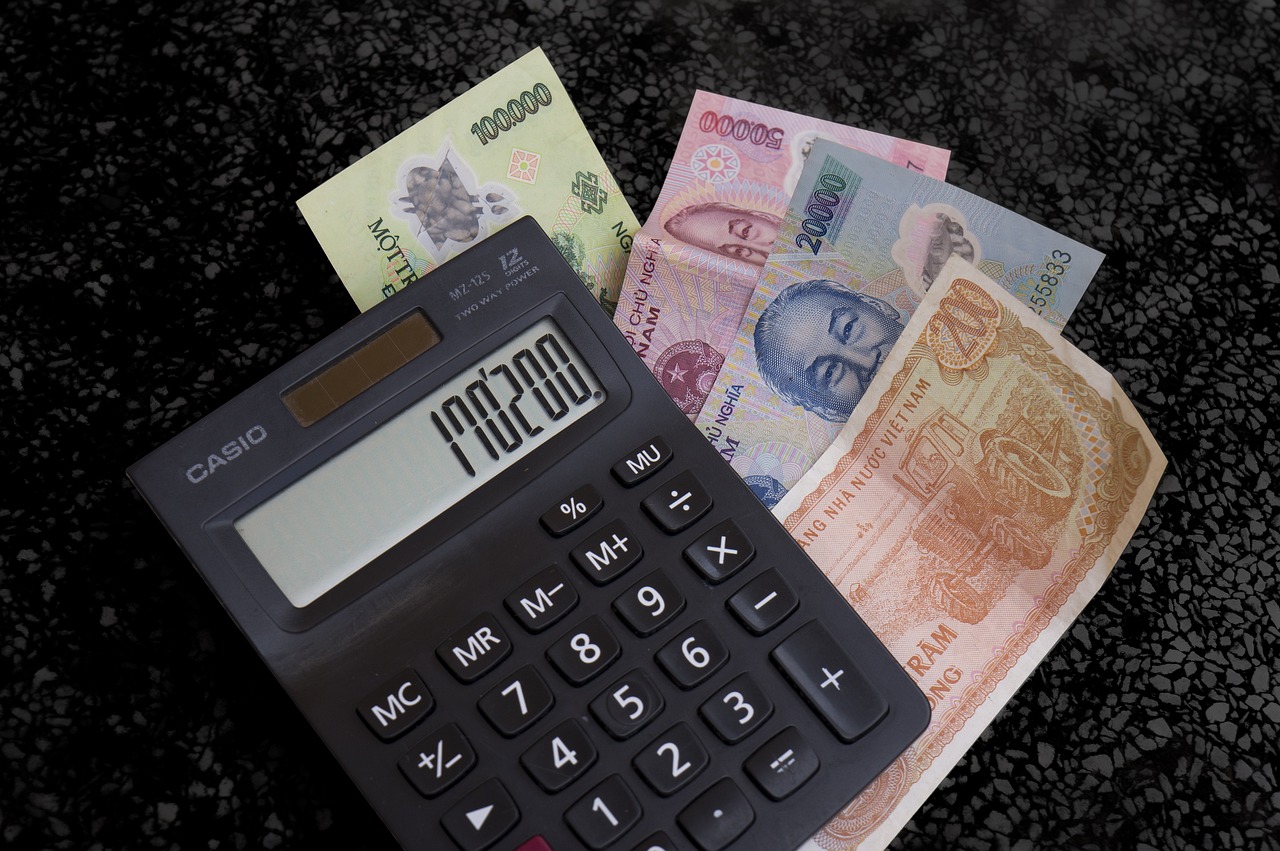Mastering Money Transfers: Your Guide to Sending Funds from the US to Japan with Confidence
GPT_Global - 2025-06-24 01:30:01.0 302
Can I cancel a money transfer from the US to Japan after it has been initiated?
International money transfers from the US to Japan are essential for various purposes, such as supporting family or business transactions. However, mistakes can occur, or changes might be needed after initiating a transfer. The good news is that it is possible to cancel a money transfer, provided certain conditions are met. The ability to cancel a transfer depends largely on the service provider's policies and how far along the transaction is in the process. Most providers offer a window of opportunity to cancel, often within 30 minutes to 24 hours after initiating the transfer. To cancel, you’ll need to contact customer support promptly and provide any required information to verify your identity and stop the transaction. Cancellation policies and procedures can vary, so it’s essential to review the terms and conditions before making a transfer. Doing so will help you understand your options in case you need to reverse a transaction. If your transaction has already been completed and funds delivered, reversing the transaction may not be possible. In such cases, clear communication with the recipient is necessary to recover your funds. When sending money from the US to Japan, always double-check the details you enter and familiarize yourself with the money transfer provider's cancellation policy. Being informed helps ensure that your transactions are secure, efficient, and successful.
What documentation is required to transfer money from the US to Japan?
When transferring money from the United States to Japan, it is important to gather the necessary documentation to ensure a smooth transaction. The first requirement is proof of identification, such as a valid passport or driver's license. Additionally, you will need to provide proof of address, which can be a utility bill or bank statement. Next, you should have the recipient's full name, address, and bank account information, including the bank name, branch, and account number. It is also essential to know the SWIFT code of the recipient's bank, as this code is used for international transfers. Finally, you may be asked to provide the purpose of the transfer, especially if the amount exceeds a certain threshold. Some financial institutions might also request additional documentation, such as income proof or a transaction agreement, depending on the context of the transfer. By having these documents ready, you can ensure a hassle-free experience when remitting money from the US to Japan, making the process efficient and secure for both parties involved.How can I ensure the best exchange rate when transferring money from the US to Japan?
When transferring money from the US to Japan, it's important to ensure you're getting the best exchange rate to maximize the value of your remittance. Here are some tips to help you secure a favorable rate.
Firstly, monitor the exchange rate trends before making your transfer. Exchange rates fluctuate, so keeping an eye on the market can help you choose the right time to send money. You can use online currency converters or financial news websites to track these changes.
Secondly, compare rates and fees from different money transfer services. Banks, online platforms, and specialized remittance companies offer varying rates and fees. Shopping around and comparing these options can lead to significant savings.
Lastly, consider setting up rate alerts or using a forward contract if you regularly send money to Japan. Rate alerts notify you when the exchange rate meets your desired level, while forward contracts allow you to lock in a favorable rate for future transfers. By using these tools, you can optimize your remittance strategy and ensure you get the best possible exchange rate.
Are there any compliance requirements for transferring large sums of money from the US to Japan?
Transferring large sums of money across international borders often comes with a unique set of compliance requirements, and transferring funds from the US to Japan is no exception. To ensure a smooth and legal transaction, it's important for individuals and businesses to understand the specific regulations involved.
In the US, any transfer of $10,000 or more must be reported to the Internal Revenue Service (IRS) and the Financial Crimes Enforcement Network (FinCEN). This is to prevent money laundering and other illicit financial activities. Additionally, banks and financial institutions may have their own reporting thresholds and may require additional documentation to process large transfers.
Meanwhile, in Japan, the recipient of the funds may need to declare the amount to the tax authorities, especially if it exceeds certain thresholds. The laws regarding taxation on remittances can be complex, and it's advisable to consult with a tax professional or financial advisor in Japan.
Overall, staying compliant when transferring large sums of money from the US to Japan requires a thorough understanding of the regulations in both countries and careful preparation of necessary documentation. By doing so, one can ensure that the transfer process is both smooth and lawful.
What are the common reasons for delays in money transfers from the US to Japan?
International money transfers from the US to Japan can experience delays for several reasons. One common cause is the difference in time zones, as Japan is typically 14 hours ahead of Eastern Standard Time. This discrepancy can lead to delays since financial institutions may be closed when transactions are initiated, leading to processing during the next business day.
Another factor contributing to delays is the verification process. To combat fraud and ensure compliance with anti-money laundering regulations, banks and remittance providers must meticulously verify the identities of both sender and recipient. This process can be time-consuming, particularly if additional documentation is required.
Bank holidays in either the US or Japan can also impact transfer times. If a transaction is initiated just before a holiday, it may not be processed until normal business operations resume. Additionally, using intermediary banks for wire transfers may introduce further delays, as each bank takes time to process the transfer.
Lastly, technical issues such as system maintenance or outages can temporarily halt transactions. Understanding these potential delays can help individuals and businesses plan their transfers more effectively and reduce frustration.
How can I send money from the US to Japan for investment purposes?
Sending money from the US to Japan for investment purposes can be a straightforward process if you take the right steps. With the increasing global connectivity, there are several platforms and methods available to facilitate international money transfers efficiently and securely. One popular method is using online remittance services that specialize in international money transfers. These platforms offer competitive exchange rates and lower fees compared to traditional banks. Before choosing a service, it's essential to compare the rates, fees, and transfer times across different providers to find the best option for your investment needs. Another option is wire transfers through banks. While this method may involve higher fees, it is known for its reliability and can be suitable for transferring large sums of money. It is important to ensure that your bank in the US supports international wire transfers and to understand the terms and conditions associated with these transactions. Regardless of the method you choose, always prioritize security by using trusted and reputable services. Additionally, consider consulting with a financial advisor to navigate the regulations and tax implications associated with sending money abroad for investment purposes. By taking these precautions, you can confidently invest in opportunities in Japan and expand your financial portfolio internationally.Can I transfer funds from the US to Japan for educational expenses?
Transferring funds from the US to Japan for educational expenses can be a seamless process with the right remittance service. Whether you're paying for tuition, accommodation, or other school-related costs, it's important to choose a reliable and efficient money transfer provider that offers competitive exchange rates and low fees. Many leading remittance companies now offer online platforms and mobile apps that enable users to send money abroad quickly and securely. When selecting a service, consider factors such as transfer speed, customer support, and the availability of convenient payout options in Japan, such as bank deposits or cash pickup. Additionally, be aware of any potential tax implications or regulatory requirements involved in international fund transfers for educational purposes. Consulting with a financial advisor or tax professional can provide clarity and ensure compliance with relevant laws. Investing in education is invaluable, and choosing the right remittance service can make supporting your educational journey in Japan easier and more cost-effective. With careful research and planning, you can confidently manage the financial aspects of studying abroad.How do I handle discrepancies or errors in a money transfer from the US to Japan?
If you've encountered discrepancies or errors in a money transfer from the US to Japan, don't panic. Handling such issues efficiently ensures a smooth resolution. First, contact the remittance service provider immediately with details of the transaction, including transaction number, amount, and recipient information. It's essential to keep all receipts and documentation related to the transfer.
Next, inquire about the provider's error resolution process—this generally involves reviewing the transaction, identifying the discrepancy, and rectifying the error. Patience is key, as this process can take several business days depending on the policies of the remittance service.
If the response is delayed or unsatisfactory, escalate the issue. Contact higher authorities within the service provider or seek external help like consumer protection agencies. It's important to remain composed and assertive throughout the process to ensure your funds are accurately transferred.
Finally, to prevent future errors, double-check all details before executing a money transfer. Accurate information and working with reputable remittance services play a crucial role in avoiding discrepancies in cross-border transactions.
About Panda Remit
Panda Remit is committed to providing global users with more convenient, safe, reliable, and affordable online cross-border remittance services。
International remittance services from more than 30 countries/regions around the world are now available: including Japan, Hong Kong, Europe, the United States, Australia, and other markets, and are recognized and trusted by millions of users around the world.
Visit Panda Remit Official Website or Download PandaRemit App, to learn more about remittance info.



